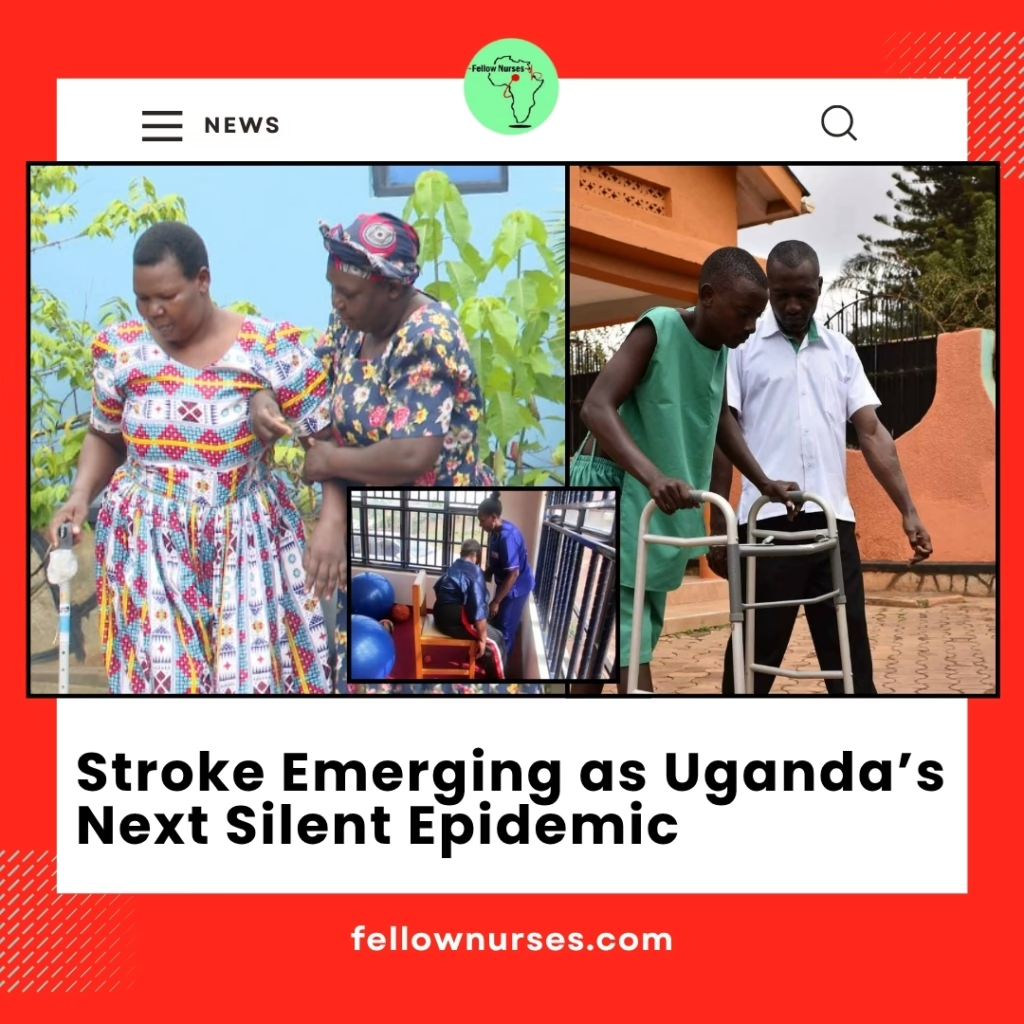Fellow Nurses Africa | Lagos, Nigeria | 31 October, 2025

Stroke is emerging as one of Uganda’s fastest-rising health concerns, but experts say the country still lacks up-to-date national data to guide prevention and policy.
Recent research among older adults with hypertension in the Greater Kampala Metropolitan Area found a stroke prevalence of 18.3 percent, meaning nearly one in five hypertensive older patients has suffered a stroke.
The 2025 study, conducted across several public health facilities, highlights the growing burden of non-communicable diseases (NCDs) in Uganda’s ageing population.
Yet despite these alarming numbers, the country has no comprehensive national stroke registry.
The most recent Uganda Vital Statistics Report (2024) lists causes of death broadly under NCDs, while the 2023 NCD Risk Factors Survey confirms steep rises in hypertension, obesity, and diabetes; all key stroke triggers.
Health professionals at Mulago National Referral Hospital, which recently led a stroke-awareness campaign, say the disease is “increasingly hitting families unprepared.” Late presentation remains a critical problem: over 90 percent of stroke patients arrive at referral hospitals after the three-hour treatment window, reducing their chances of recovery.
Dr Jane Nakibuuka, a leading neurologist at Mulago, has repeatedly called for stronger prevention and early-response systems.
“Time lost is brain lost,”
Nurses and health educators are also pushing for broader community screening and better data collection.
“We cannot fight what we cannot measure,” said a stroke-awareness volunteer in Kampala. “Accurate national figures would help allocate resources and save lives.”
As Uganda’s population ages and urban lifestyles change, experts warn that stroke could soon rival infectious diseases in its social and economic toll unless prevention, screening, and emergency-care systems are urgently strengthened.
Key Facts
-
18.3% of older hypertensive patients in urban Uganda have had a stroke (2025 study).
-
91% of stroke patients in referral hospitals present after the 3-hour window for optimal treatment.
-
Stroke contributes significantly to Uganda’s 9% NCD-related mortality burden.
-
National stroke registry: still absent.
This calls for serious concerns and adequate record keeping as well as efficient data management which will help make timely and informed plans to curb this silent killer.
Fellow Nurses Africa is the independent voice of African Nurses. We educate, inform and support the nursing profession.










